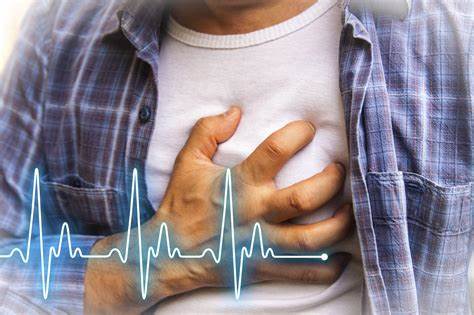A heart attack is a medical emergency that requires immediate attention. It occurs when there is a blockage in the blood vessels that supply the heart with oxygen and nutrients. This blockage can be caused by a buildup of cholesterol, blood clots, or other substances that narrow the arteries. If you or someone you know experiences a heart attack, it is important to know what to do in order to improve the chances of survival and recovery.
Recognize the Symptoms
The first step in dealing with a heart attack is to recognize the symptoms. The most common symptom is chest pain or discomfort, which may feel like pressure, squeezing, or fullness. The pain may also spread to the arms, neck, jaw, back, or stomach. Other symptoms may include shortness of breath, sweating, nausea, lightheadedness, or a feeling of impending doom. It is important to note that not everyone who has a heart attack will experience the same symptoms, and some may have no symptoms at all.
Call for Emergency Help
If you suspect that you or someone you know is having a heart attack, the next step is to call for emergency medical help. Do not wait to see if the symptoms go away or try to drive to the hospital. Instead, call 911 or your local emergency number as soon as possible. The emergency operator will ask you for your location, the symptoms you are experiencing, and other relevant information. They will dispatch an ambulance and provide instructions on what to do until the paramedics arrive.
Take Aspirin
Taking aspirin during a heart attack can help to reduce the damage to the heart muscle. Aspirin works by reducing the stickiness of the blood, which can help to prevent blood clots from forming. If you have aspirin on hand, take a dose of 325 milligrams as soon as possible. Chew the aspirin and swallow it with water. Do not take aspirin if you are allergic to it or have been advised by your doctor not to take it.
Stay Calm and Rest
While waiting for the paramedics to arrive, it is important to stay calm and rest. Try to keep the affected person calm as well. Sit or lie down, and avoid any physical exertion or movement. Do not eat or drink anything unless instructed to do so by the emergency operator. If the person becomes unconscious, perform CPR if you are trained to do so. Otherwise, wait for the paramedics to arrive and take over.
Follow Medical Advice
Once the person has been taken to the hospital, it is important to follow the medical advice of the doctors and nurses. They may perform tests to determine the extent of the damage to the heart, such as an electrocardiogram (ECG) or blood tests. They may also prescribe medications, such as blood thinners, beta-blockers, or nitroglycerin, to help reduce the workload on the heart and prevent future complications. It is important to take these medications as directed and to attend any follow-up appointments.
Make Lifestyle Changes
After a heart attack, it is important to make lifestyle changes to improve heart health and prevent future heart attacks. This may include quitting smoking, exercising regularly, eating a heart-healthy diet, managing stress, and controlling other medical conditions such as high blood pressure or diabetes. Your doctor may refer you to a cardiac rehabilitation program, which can provide education, counseling, and exercise training to help you recover and prevent future heart problems.
In conclusion, a heart attack is a serious medical emergency that requires immediate attention. Recognizing the symptoms, calling for emergency help, taking aspirin, staying calm and resting, following medical advice, and making lifestyle changes are all important steps to take in the event of a heart attack. With prompt and appropriate care, many people can survive a heart attack

